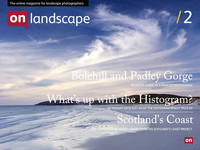Featured photographer

Tim Parkin
Amateur Photographer who plays with big cameras and film when in between digital photographs.
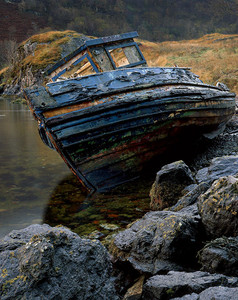 For every 'famous' photographer that you may hear about through our esteemed photographic press or via 'exploring' the photo sharing websites, there are many more who just go about their photographic business with little attention. It should therefore come as no surprise that for every 'brilliant, famous' photography, there are other 'brilliant, unkown' photographers.
For every 'famous' photographer that you may hear about through our esteemed photographic press or via 'exploring' the photo sharing websites, there are many more who just go about their photographic business with little attention. It should therefore come as no surprise that for every 'brilliant, famous' photography, there are other 'brilliant, unkown' photographers.
One of Great British Landscape's self imposed goals is to bring some of those photographers to a wider audience and so that, somewhat roundabout, introduction brings me to one of our personal favourite photographers, Neil Bryce.
Neil is a dentist by training but works four days a week to give him more time to work on his photograpy, a hobby he has no ambition to extend into professional areas. When he's not causing intense pain and financial damage, he's not averse to spending time in the Wirral or north Wales and has been known to visit the northern parts of Liverpool - on occasion as far as the Outer Hebrides, where I met him for the first time on a course run by David Ward. The occasion was important for both of us in similar ways, as Neil mentions.
I asked Neil a few questions about his photography and he kindly replied..
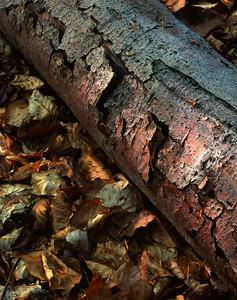 Your style of photography is particularly 'quiet', not unlike Eliot Porter or Christopher Burkett. Did you start your photography with this sort of vision? If not how did it develop?
Your style of photography is particularly 'quiet', not unlike Eliot Porter or Christopher Burkett. Did you start your photography with this sort of vision? If not how did it develop?
Well, quiet is not one of the adjectives that springs to mind when thinkng about my images but thankyou. When I started out I was drawn to strong graphical shapes, colours and patterns, things that caught the eye, very simplistic and obvious. Being new to photography I was unaware of the subtler nuances of light and composition and living in a city was influenced by my immediate urban surroundings. Since concentrating (almost exclusively) on landscape photography where chaos is often the overiding feature I still find I am drawn to strong compositional elements, sometimes too much so, feeling my images can be too simplistic ordered and graphical. Porter and Burkett especially, have a more freeform, fluid and natural style that I would love to emulate. As for my vision/style developing, I feel I am only just taking my first steps, there is such a lot to explore yet.
In most photographers lives there are 'epiphanic' moments where things become clear, or new directions are formed. What were your two main moments and how did they change your photography?
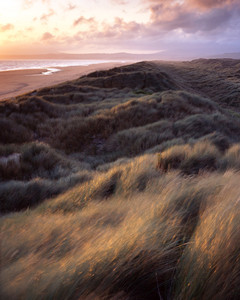
My two 'epiphanies'... let me think. I suppose the first was when I bought my first camera in 2004 in my thirties. As a child I was always creative, as most children are and was even quite good at art. That slowly slipped away as I hit my teens and early twenties and work and socialising took over. The camera purchase (which initially was to record case studies for work) awakened my creative side again. I haven't looked back since. The second 'epiphany' was shortly after. I had decided to try some landscape 'stuff' after seeing some images in one of the photo magazines.I woke up rediculously early (never got up before 10am on the weekends) and traveled down to Llangollen for the sunrise. That morning was a true epiphaneal moment for me, on a heathery hillside, clear skies, looking down into a misty valley with the river winding between white frosted fields. Watching the colour of the sky change from blues to pinks as the dawn approached and then when the sun finally rose and its beams streamed down the valley higlighting the tree tops, well... I was hooked. There have been a few other defining photographic moments that have changed my approach and perception but non as dramatic as the above.One was watching several large format photographers at work, their approach to photography appealed to me, also viewing a 5x4 on a lightbox is quite a wow moment. Another was seeing some of David Wards transparencies on a tour I was on. I think it was then that the penny dropped that photography could be art.
Landscape photography hardly lucrative and, as a full time medical professional, what are your goals? How do you balance your source of revenue with your creative side?
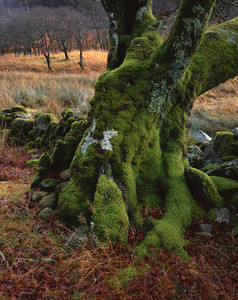 Luckily I am in the enviable position of being able to have a good career which also allows me time to enjoy my hobby. I went back to college at the age of 26 feeling I was in a dead end job. It was a huge gamble at an age when I should have been thinking of mortgages and settling down. I wanted to do more with my life, have a rewarding and fulfilling career and a more pleasing way of life than I thought I was destined for. Looking back it was the bravest decision I have ever made but I would do it again without hesitation. Currently I have the best of both worlds, a rewarding career, although stressful, and the ideal hobby that helps me escape mentally and emotionally. They go hand in hand at the moment and one complements the other. I have been fortunate to be able to reduce work to a four day week and have a 3 day weekend for the photography (even though that still gets easily disrupted) At the end of the day that was my intention as a 26 year old, the money might not be as good but my quality of life and enjoyment has improved immeasurably. I am quite happy where I am at the moment and cannot see a huge change. Certainly as far as the photography goes I don't see myself becoming more professional (I haven't sold a print yet !) Keeping it as a hobby maintains my enjoyment and fulfillment, the day I became worried about deadlines, commisions and fulfilling a brief is probably the day I would change my hobby....well...maybe.
Luckily I am in the enviable position of being able to have a good career which also allows me time to enjoy my hobby. I went back to college at the age of 26 feeling I was in a dead end job. It was a huge gamble at an age when I should have been thinking of mortgages and settling down. I wanted to do more with my life, have a rewarding and fulfilling career and a more pleasing way of life than I thought I was destined for. Looking back it was the bravest decision I have ever made but I would do it again without hesitation. Currently I have the best of both worlds, a rewarding career, although stressful, and the ideal hobby that helps me escape mentally and emotionally. They go hand in hand at the moment and one complements the other. I have been fortunate to be able to reduce work to a four day week and have a 3 day weekend for the photography (even though that still gets easily disrupted) At the end of the day that was my intention as a 26 year old, the money might not be as good but my quality of life and enjoyment has improved immeasurably. I am quite happy where I am at the moment and cannot see a huge change. Certainly as far as the photography goes I don't see myself becoming more professional (I haven't sold a print yet !) Keeping it as a hobby maintains my enjoyment and fulfillment, the day I became worried about deadlines, commisions and fulfilling a brief is probably the day I would change my hobby....well...maybe.
Which photographers do you think influence you (conciously or unconciously) and which photographer do you admire despite being in a different landscape photography 'genre'.
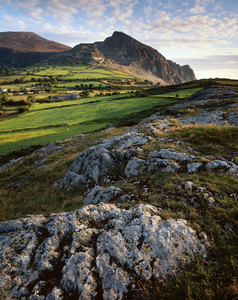 How long do you want the list to be Tim. I suppose the main ones that I keep returning to and have had the biggest wow moments are everyones favourites. As mentioned Eliot Porter, Christopher Burkett, also Jan Tove, Paul Wakefield, David Ward and Joe Cornish. Recently Charlie Waite, whilst I've known of him for ages I haven't really looked at his images extensively, I'm really enjoying them. Also Charles Cramer, Paul Schilliger... I'll stop now. Someone I admire in a different genre would have to be Michael Kenna, I don't really do black and white photography but I enjoy his style. Others I keep returning to and try to keep an eye on are people like Jon Brock, Richard Childs, Dav Thomas, Julian Barkway, Nigel Halliwell, Anna Booth and of course your good self.
How long do you want the list to be Tim. I suppose the main ones that I keep returning to and have had the biggest wow moments are everyones favourites. As mentioned Eliot Porter, Christopher Burkett, also Jan Tove, Paul Wakefield, David Ward and Joe Cornish. Recently Charlie Waite, whilst I've known of him for ages I haven't really looked at his images extensively, I'm really enjoying them. Also Charles Cramer, Paul Schilliger... I'll stop now. Someone I admire in a different genre would have to be Michael Kenna, I don't really do black and white photography but I enjoy his style. Others I keep returning to and try to keep an eye on are people like Jon Brock, Richard Childs, Dav Thomas, Julian Barkway, Nigel Halliwell, Anna Booth and of course your good self.
How do you find photographs in the field? What processes and tools do you use (i.e. how long do you spend looking to taking, do you use a finder, etc.)
The main approach for me is to be inquisitive and enjoy the moment. I almost revert to having a childs like curiosty and when I'm fully focused it's like I'm seeing things for the first time. I get those excited feelings in the pit of the stomach and walk round with a spring in my step. I tend to look for shapes, patterns and colours that catch my eye, something that interests me. I don't make images with anyone in mind, or to please an audience, I'm doing it just for my own pleasure. Once I see something then I'll explore the possibilities for an image, composition, framing, angles. Try different distances and heights and include or exclude different components. Usually I'll narrow the choices down to a few ideas and then its a case of picking the most complete, balanced and pleasing composition. Usually to help with this I use a viewfinder but more recently I've been using a canon S90 which I find gives a better indication of what the image will look like 2 dimensionally. More often than not if I can't make it work I'll move on to something else. 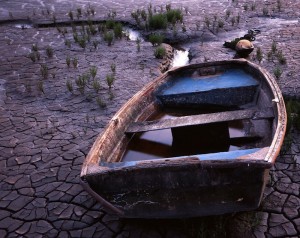 Very rarely I'll be walking around and and image will just appear. It's difficult to explain but I just know its right, it feels right, I know exactly what will be included and how it will look. I find those images are my most enjoyable ones. My best advice would be go out without expectations. If I go on a photographic holiday my aim is to come back with just one shot that encapsulates my holiday, one shot that would be a keeper and I wouldn't tire of looking at. I find it more relaxing and enjoyable if I say to myself you've got a whole week to get one photo. Then again I'm more than happy to come back home not having taken a single image as it is all about being outdoors in nature and enjoying the journey. The photographs I take in my mind are the most important ones.
Very rarely I'll be walking around and and image will just appear. It's difficult to explain but I just know its right, it feels right, I know exactly what will be included and how it will look. I find those images are my most enjoyable ones. My best advice would be go out without expectations. If I go on a photographic holiday my aim is to come back with just one shot that encapsulates my holiday, one shot that would be a keeper and I wouldn't tire of looking at. I find it more relaxing and enjoyable if I say to myself you've got a whole week to get one photo. Then again I'm more than happy to come back home not having taken a single image as it is all about being outdoors in nature and enjoying the journey. The photographs I take in my mind are the most important ones.
Tell me about your 'equipment' (without being rude)? I know you are a film user, do you get on with digital - what do you feel are the advantages and disadvantages of film/digital?
I've never been a huge fan of digital (sorry) although I've got a sony A900 and a canon S90. I cant quite put my finger on it but it doesn't look as natural to me to a well exposed slide, even the saturated (some say garish) velvia. It could be my processing but I feel the colours aren't quite right or it looks too clean or plastiky. Don't get me wrong I couldn't pick someone elses digital shot from a film shot if they smacked me around the head but when I'm working on my images I don't have the same affinity for my digital images as I do my film. Perhaps that has something to do with the craft of making the image and the tactile nature of physically holding a slide in my hands. The S90 is great for instant feedback and exploring with, plus its light, unlike my Linhof Technikardan large format view camera which weighs close to (I'll have to get the scales out) one tonne.
Many thanks Neil! If you want to see more of Neil's picture, we've included a sample here or you can visit his flickr stream here

